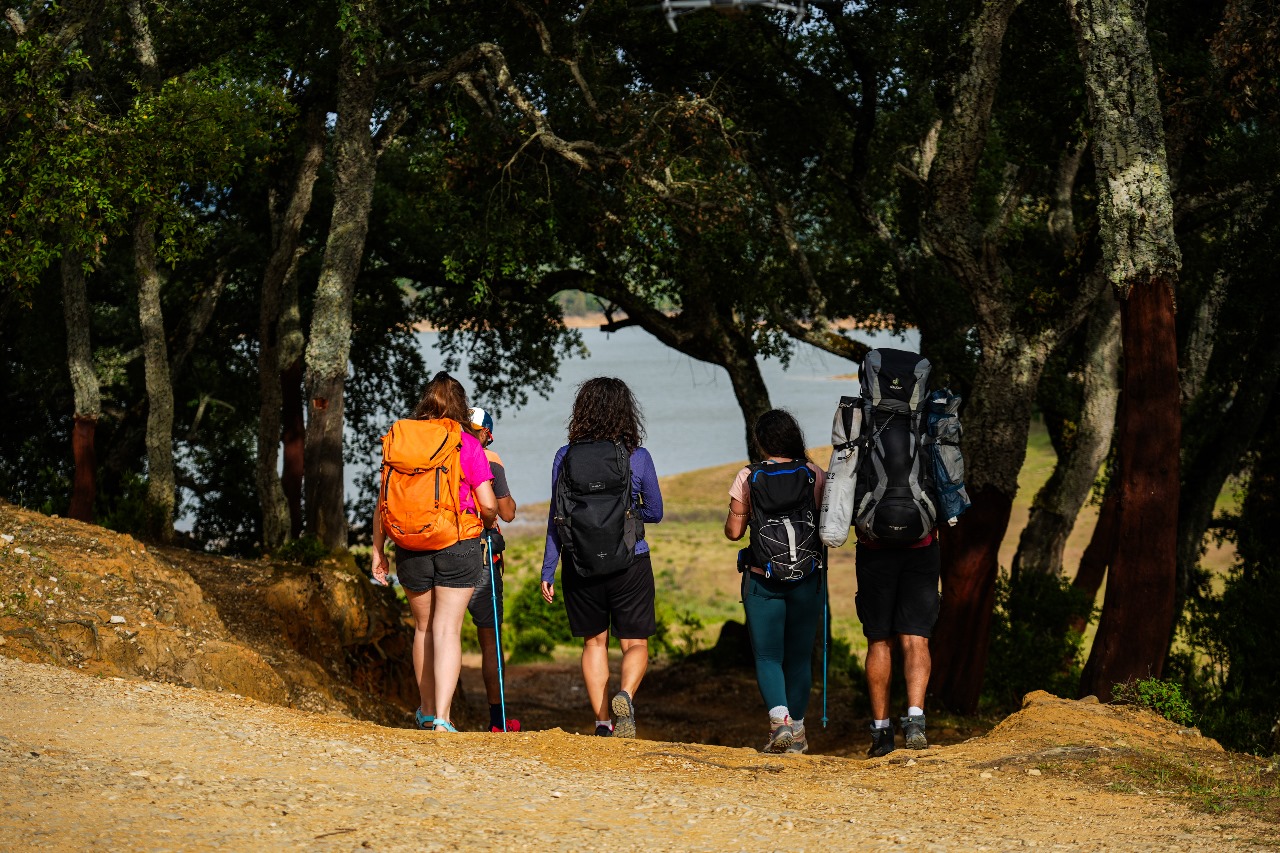
- 07 Feb 2023
Tunisia’s tourism sector has long been dominated by a handful of well-known coastal resorts that cater to international visitors who typically come for sun, sand and all-inclusive deals. These holidaymakers rarely venture far from their hotel, if at all.
Because of this relatively one-dimensional approach, Tunisia’s potential as a destination for tourists looking for adventure, culture and ecological diversity remains largely untapped.
The latest tourism figures show that visitor numbers have not returned to pre-pandemic levels – possibly because of global trends in tourism which are shifting away from old models.
In the sector’s ever-evolving landscape, this represents an opportunity to reposition Tunisia’s offering to international visitors.
By becoming less reliant on coastal tourism, Tunisia will have the opportunity to boost small businesses in the sector, especially in the northwest’s underserved areas and the Sahara in the south.
Adventure travel in Tunisia
One strong candidate as a potential new marketplace is adventure travel. Loosely defined as any kind of tourism that involves travelling to remote or exotic locations to try physical activities, it is a category that suits Tunisia well.
With thousands of square miles of picturesque landscapes, mountains and deserts for visitors to explore, Tunisia has much to offer.
But the country needs a helping hand. Many MSMEs in the tourism sector lack the technical know-how or key business skills to cater to the modern traveller’s need to explore and live experiences, not just mere products or services.
To encourage international tourists off the beaten track, Tunisia needs to offer assurances that they will be well looked after.
The Trans-Tunisia Trekking Trail
One of the ways in which Leaders International and GIZ Tunisie are helping on this front is the Trans-Tunisia Trekking Trail project (also known as 4T), implemented as part of the wider Tounes Wijhetouna programme, funded by the EU and BMZ.
It is a hiking path that spans the country from east to west, and support is being provided not just to enhance and develop the trail, but to assist the many MSMEs along its route that stand to benefit from increased tourism numbers.
The trail capitalises on Tunisia’s geographical diversity and rich history – and has the potential to introduce future holidaymakers to areas of outstanding natural beauty and cultural significance that are not commonly experienced by overseas visitors.
Four segments will be established along the 4T route, and support will be given to dozens of small businesses in these areas to help them upgrade their services – or add new ones that would attract international adventure-lovers, solo travellers and eco-tourists.
Towering mountains and Roman ruins
Two of the cities that have been singled out as key destinations on the 4T are to be found in the north of the country. This vast area offers a surprisingly verdant side to Tunisia that relatively few tourists currently get to see.
Less than two hours from Tunisia’s capital city, Tunis, is Zaghouan. With a population of around 21,000, Zaghouan is known for its National Park, which is dominated by the towering Mount Zaghouan, the highest point in Eastern Tunisia.
Existing hiking trails make the region an obvious choice for inclusion in the 4T project, and visitors can expect to see rare birds, a Roman ‘Temple of Water’ and a Roman aqueduct, constructed around 139AD.
Also, on the 4T trail is the city of El Kef in western Tunisia. Slightly larger than Zaghouan and a gateway to numerous trails. El Kef is also the site of an ancient Ottoman fortress and the ruins of Roman baths.
Changes inspired by the pandemic
Despite the numerous difficulties endured by Tunisians during the pandemic, the coronavirus crisis also provided the spark for change in the country’s approach to tourism.
Many Tunisians who took to the countryside to unwind during the pandemic came to appreciate the beauty of their country all over again.
These same people are now seeing the possibilities that this landscape could offer in a post-Covid world – a world in which sustainable tourism has an ever-increasing appeal.
The year-long 4T project will offer technical support, the marking of hiking trails, and marketing activities for the trail and its neighbouring SMEs to give local tour operators and service providers the opportunity to carve out a sustainable future and boost employment.
Next stop: the Sahara
As the eyes of international visitors are drawn to Tunisia’s lesser-known treasures in the coming years, further tourism activities look set to extend to the relatively undeveloped south of the country.
Numerous North African countries already reap the benefits of Saharan tourism, and Tunisia – much of whose lower half falls within the desert’s geographical spread – could soon be added to this list.
Leaders International hopes to support Tunisia as it transitions from its reliance on outdated tourism models and embraces innovative new, sustainable solutions that span the whole country.
In November 2022, we supported the Tunisian Ministry of Tourism and other partners in the Tounes Wijhetouna programme to orchestrate the National Conference on Saharan and Oasis Tourism. The conference aimed at proposing and discussing various investment and development solutions for inclusive tourism in the region.
Despite the government’s efforts to boost Saharan tourism in the last three decades, occupancy rates in hotel units remain low as MSMEs in the region are still missing out on development and capacity development opportunities – a reality that Leaders International hopes to change in the coming future.
Do you want to be involved in the future of tourism in Tunisia? Read more about our work in sustainable tourism development and get in touch to find out how we can work together.